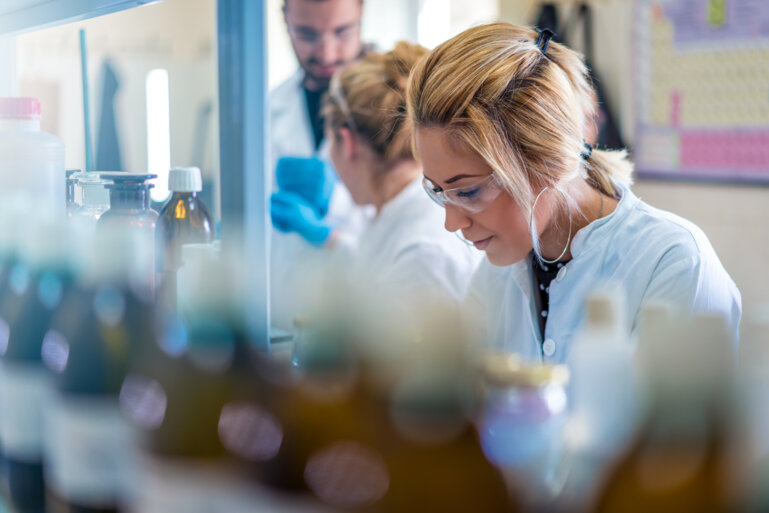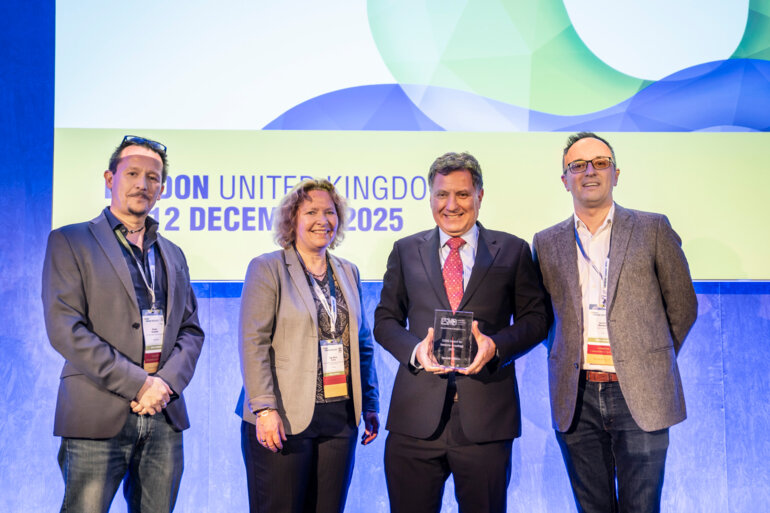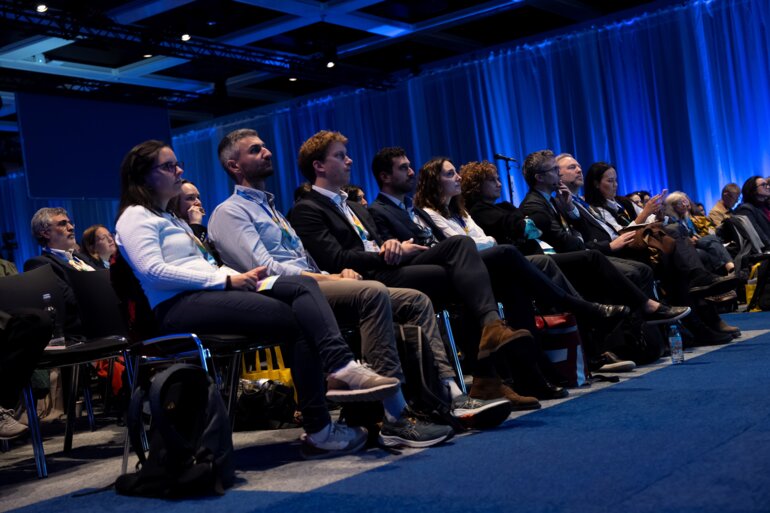A phase II trial reports a longer recurrence-free and distant-metastasis free survival with the combination of mRNA and pembrolizumab.
Stimulating reactive T cells targeting patient-specific tumour neoantigens to augment the efficacy of immune checkpoint inhibitors may representing a novel modality for the treatment of cancer, as suggested by the results of an open-label, randomised, phase 2b trial published in The Lancet (Lancet. 2024 Jan 18:S0140-6736(23)02268-7). In the study, the combination of adjuvant pembrolizumab, a PD-1 inhibitor, with mRNA-4157, an mRNA-based individualised neoantigen therapy, produced clinically superior outcomes compared with checkpoint blockade alone in patients with completely resected stage IIIB-IV cutaneous melanoma.
A total of 157 patients were enrolled in the period July 2019-September 2021 and then randomised to either receive the combination therapy or pembrolizumab monotherapy. Each mRNA-4157 individualised neoantigen therapy was manufactured for encoding up to 34 neoantigens in a lipid nanoparticle formulation and was tailored specifically to an individual’s tumour mutanome and human leukocyte antigen type. Patients assigned to the combination group received pembrolizumab intravenously every 3 weeks during mRNA-4157 manufacturing. Combination treatment began on availability of mRNA-4157, which was administered intramuscularly with the next scheduled dose of pembrolizumab for synchronous dosing in 3-week cycles for up to nine doses. Dose modification of either treatment was not permitted. Pembrolizumab was given until disease recurrence, unmanageable toxicity, or completion of 18 cycles. The primary endpoint was recurrence-free survival (RFS) in the intention-to-treat population, and secondary endpoints included distant metastasis-free survival safety, and tolerability. Median follow up was 23 months and 24 months respectively in the combination and pembrolizumab monotherapy arm.
Overall, numerically higher RFS rates were reported in the combination group compared to the monotherapy group. Rates of RFS were 83% (95% CI 74·7–89·3) vs 77% (95% CI 62·5–86·6) at 12 months and 79% (95% CI 69·0–85·6) vs 62% (95% CI 46·9–74·3) at 18 months, respectively. Also, in the intention-to-treat population, distant metastasis-free survival was longer in the combination group compared with the monotherapy group (HR for distant recurrence or death, 0·347 [95% CI 0·145–0·828]; p=0·013), with rates at 24 months of 92% (95% CI 84·2–95·8) and 73% (95% CI 56·2–84·4), respectively.
Immune-mediated adverse events were similar in both treatment groups, but a numerically higher recurrence of Grade ≥3 treatment-related adverse events in the combination and a lower rate of recurrence or death were observed in the combination group.
“These are the first results of a large study testing a personalised neo-antigen vaccine in cancer. The results for adjuvant treatment in melanoma in combination with anti-PD-1 are particularly encouraging, with meaningful improvements in RFS and DMFS”, says Dr Marco Donia, Copenhagen University Hospital, Herlev, Denmark. Personalised treatments such as mRNA-4157 involve analysis of patient’s tissue, target selection and manufacture of one product for one patient, thus representing a new level of logistical challenge for biopharmaceutical companies and healthcare systems. “The successful completion of this trial, despite the additional manufacturing challenges posed by the COVID-19 pandemic during the study period, which required some adjustments in the randomisation technique, demonstrated the feasibility of personalised vaccines at the phase II scale.”
A phase III trial is now ongoing (NCT05933577) and is expected to provide a definitive answer on whether personalised neo-antigen vaccines can become a mainstream approach in melanoma care.






